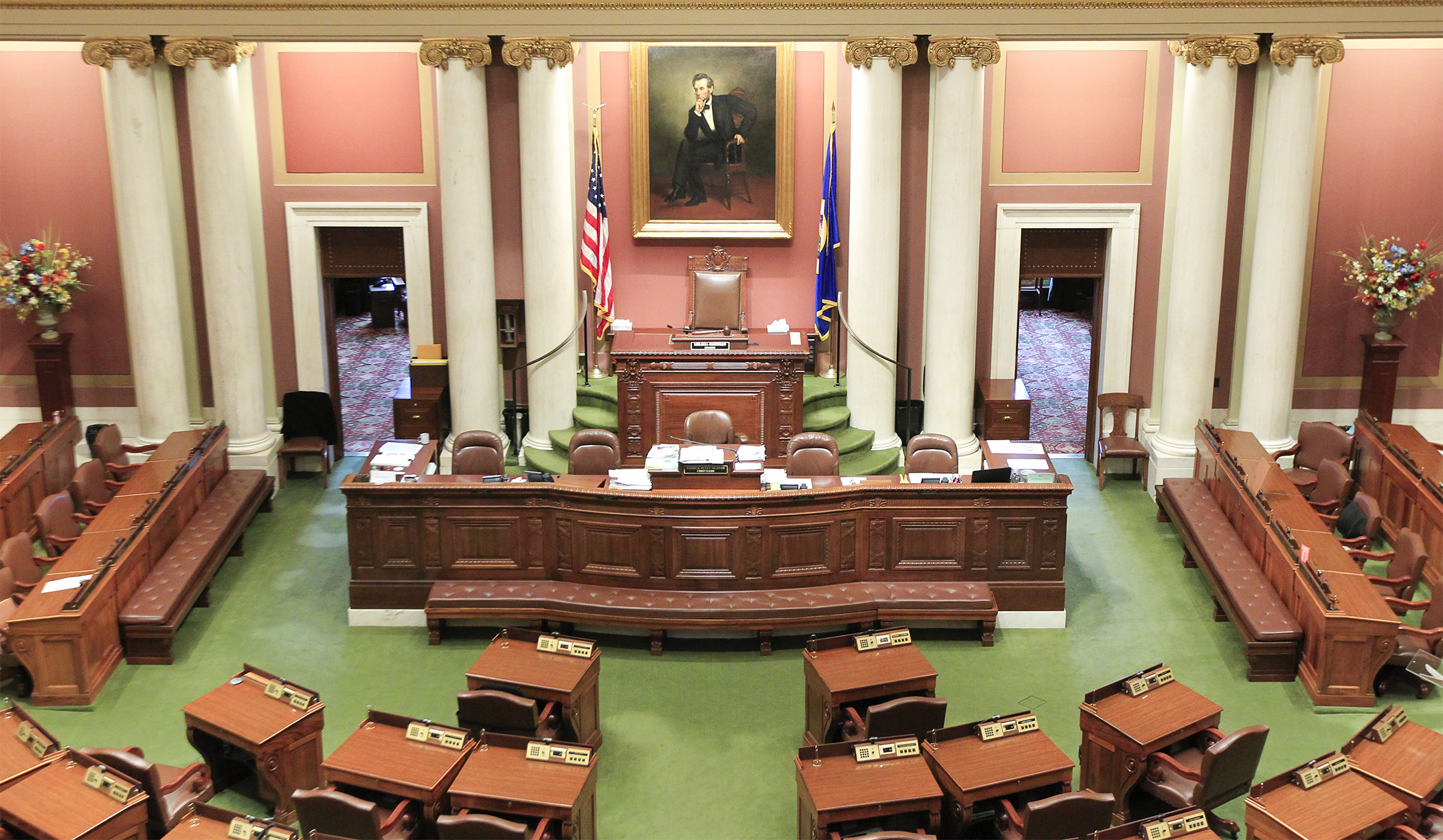SAFE account bill fails to gain enough support, tabled for second time

For the second time in a week, a bill that would create the State Aid for Emergencies account and fund it with $35 million was discussed on the House Floor, but failed to pass the chamber.
Thursday’s session ended on the same note as Monday’s session, with HF445 being tabled.
However, this time it came after a vote.
As amended, the bill failed 72-62. Six representatives from Minneapolis and St. Paul and House Majority Leader Ryan Winkler (DFL-Golden Valley) were among DFLers voting against the bill. Winkler then successfully tabled the bill.
The bill, which has no Senate companion, would create a state contingency fund to reimburse local communities for public safety overtime and staffing costs provided through mutual aid after significant “critical incidents” occur.
“All Minnesotans deserve to be safe in their communities while having the ability to exercise their first amendment rights," Rep. Carlos Mariani (DFL-St. Paul), the bill sponsor, said in a statement. "We’ve worked hard to develop legislation that recognizes each of these values, investing in the response to actions that harm people or property, while including reasonable accountability measures to build trust within our communities. The trial of former officer Derek Chauvin is just days away, and we will continue working on a solution to deliver the necessary resources in preparation for this major event.”
During the debate, Mariani said the impetus for the bill was the substantial costs in overtime, supplies, food, and lodging for officers from other law enforcement agencies who answered the call to help Minneapolis police quell the civil unrest after last year’s death of George Floyd in police custody.
There’s an urgency to get the SAFE account established, Mariani said, because more civil unrest is expected when the trial for the first of the four ex-Minneapolis police officers charged in Floyd’s death is scheduled to begin in March.
Mariani successfully offered an amendment to soothe a sore spot for law enforcement organizations and improve the chances of passing the bill and sending it to the Senate. It added language that would give legal immunity to responding police officers if they violate department policies while in the jurisdiction they were sent to help.
For that, the bill was no longer opposed by three statewide law enforcement organizations. Although they are “neutral” on the bill, the Minnesota Law Enforcement Coalition issued a statement Thursday urging House members to pass the amended legislation “and continue discussions with the Minnesota Senate and all stakeholders on a final version.”
But Mariani’s change was not enough to get the bill passed. No Republicans voted for the measure.
“Instead of building consensus, Democrats chose to force a vote on a bill with unrelated policy demands that even their own caucus did not support,” House Minority Leader Kurt Daudt (R-Crown) said in a statement. “House Republicans have offered a truly bipartisan path forward that would provide the funding law enforcement needs to prevent a repeat of last summer’s riots, and leaves the controversial issues aside.”
That came in the form of an amendment unsuccessfully offered by Rep. Brian Johnson (R-Cambridge).
It would have prevented state police agencies – the State Patrol and DNR conservation officers – from being eligible for reimbursement from the SAFE account if they responded to a mutual aid request. It would also eliminate requiring the Peace Officers Standards and Training Board to develop a model policy on law enforcement responses to large groups exercising their First Amendment right to protest peacefully.
What’s in the bill
Local governments asking for extra law enforcement assistance would be eligible to get 75% of their expenses reimbursed; agencies responding to a request for mutual aid would be eligible for 100% reimbursement.
Only specific costs would be eligible for reimbursement from the SAFE account. This includes overtime costs, logistical needs, incidental supplies, backfill personnel costs, damaged equipment, threat mitigation costs, indemnification, and after action review costs.
The POST Board, which regulates education, selection, licensing, and training standards for the state’s more than 11,800 peace officers, would be required to develop a model policy on public assembly response and for law enforcement agencies to adopt a public assembly response policy based on the model policy.
Responding law enforcement agencies would need report to the POST board on how they responded to the public safety event, and the board must conduct a review to determine compliance to the policy before authorizing reimbursement.
Related Articles
Search Session Daily
Advanced Search OptionsPriority Dailies
Ways and Means Committee OKs proposed $512 million supplemental budget on party-line vote
By Mike Cook Meeting more needs or fiscal irresponsibility is one way to sum up the differences among the two parties on a supplemental spending package a year after a $72 billion state budg...
Meeting more needs or fiscal irresponsibility is one way to sum up the differences among the two parties on a supplemental spending package a year after a $72 billion state budg...
Minnesota’s projected budget surplus balloons to $3.7 billion, but fiscal pressure still looms
By Rob Hubbard Just as Minnesota has experienced a warmer winter than usual, so has the state’s budget outlook warmed over the past few months.
On Thursday, Minnesota Management and Budget...
Just as Minnesota has experienced a warmer winter than usual, so has the state’s budget outlook warmed over the past few months.
On Thursday, Minnesota Management and Budget...